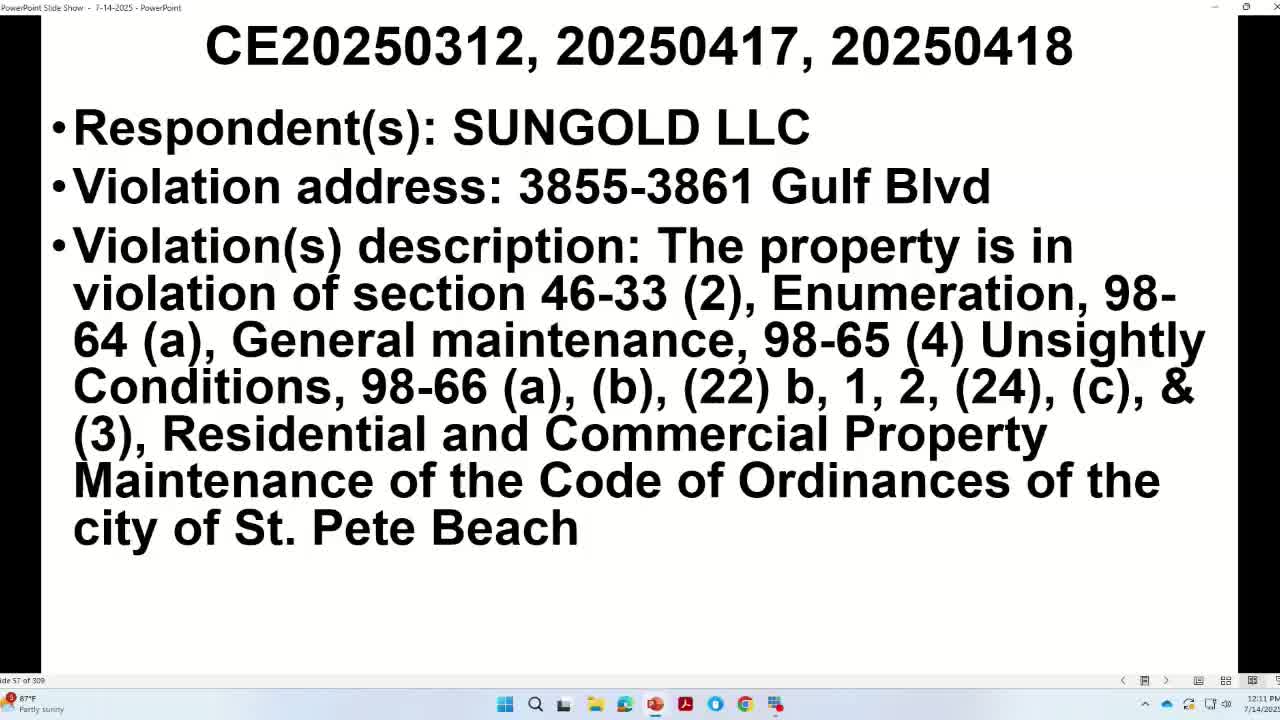Article not found
This article is no longer available. But don't worry—we've gathered other articles that discuss the same topic.
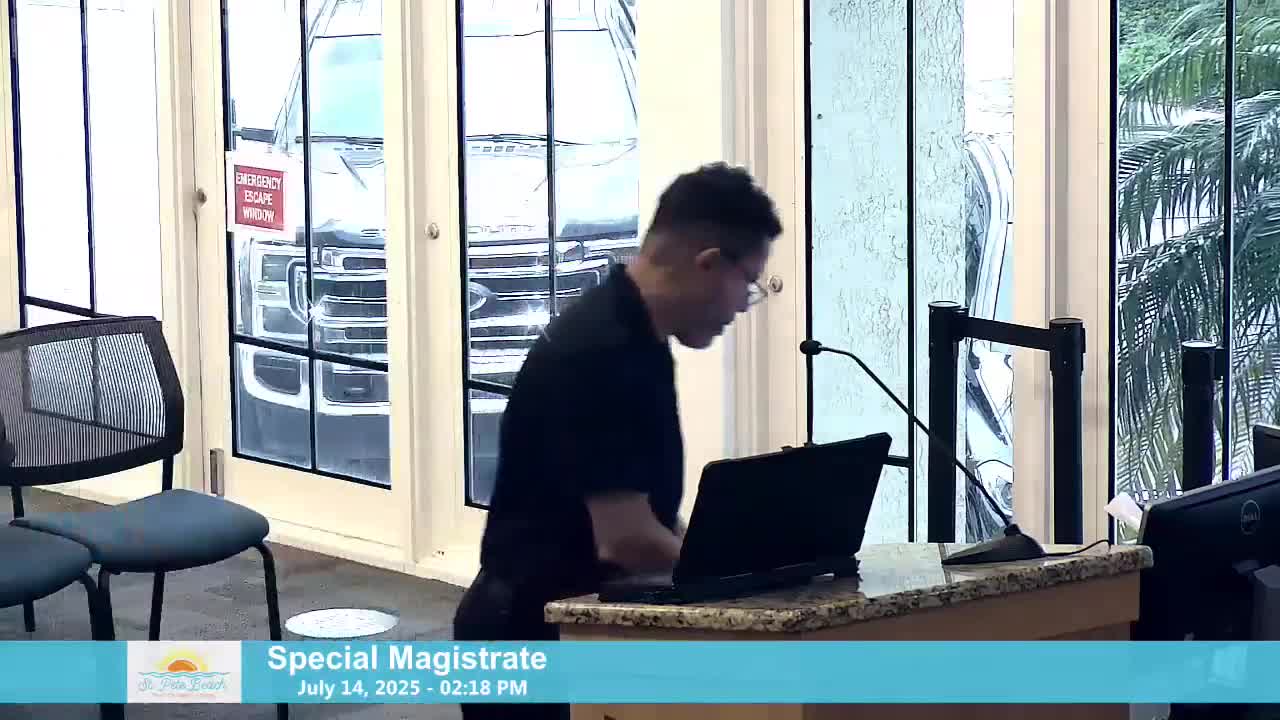
Magistrate grants partial lien reduction for 4401 Gulf Boulevard property; reduced amount due within 30 days
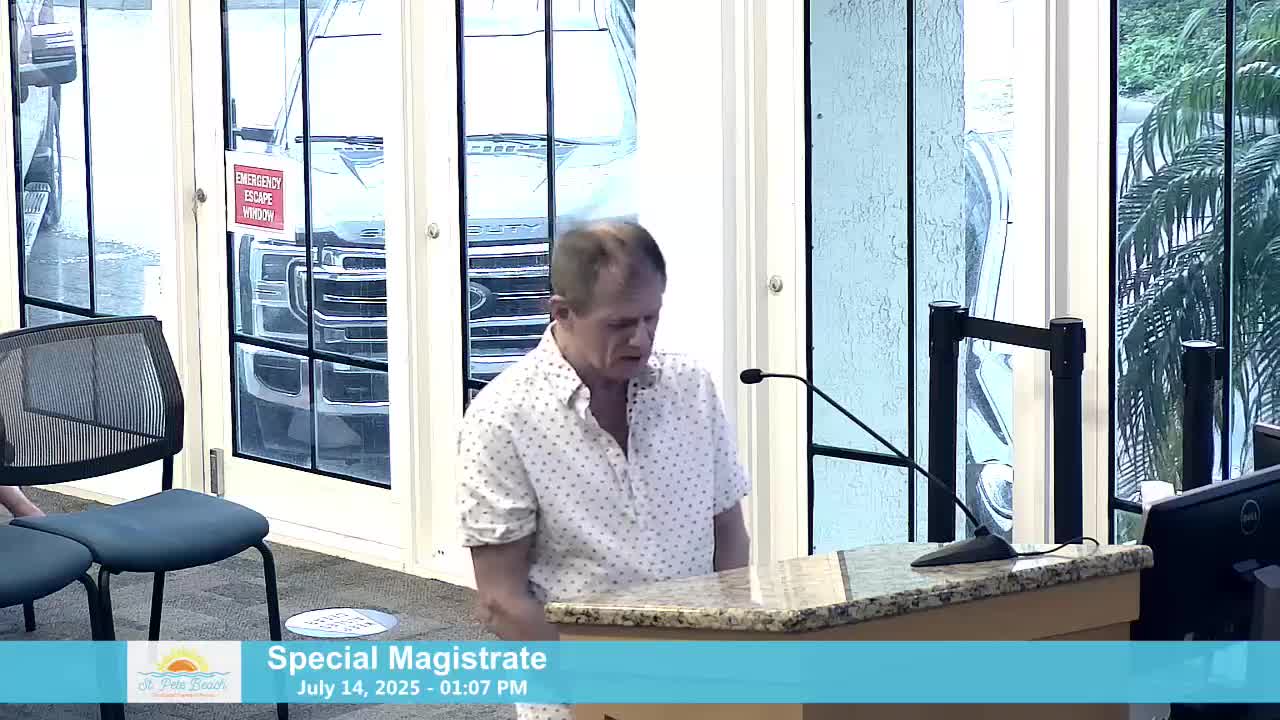
Brightwater Beach Condo told to secure after‑the‑fact permits for new dumpster enclosure and fence within 60 days
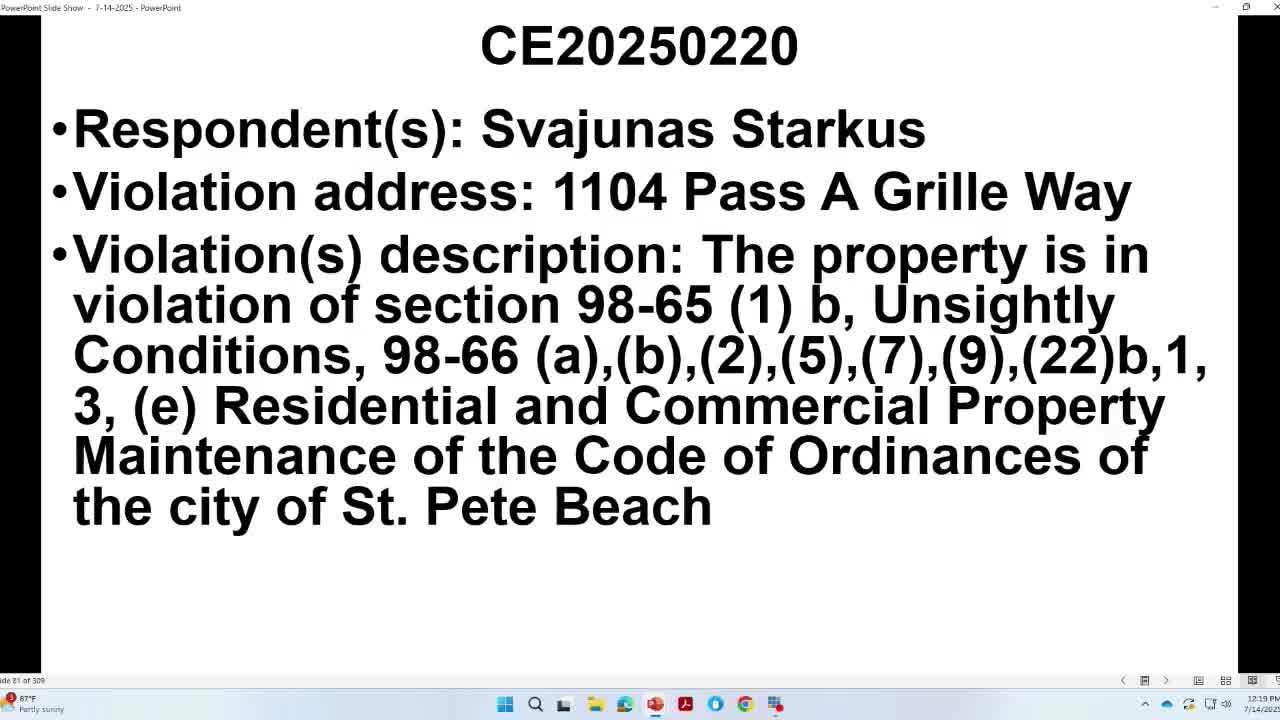
Owner of storm‑damaged 1104 Passagrow Way given 60 days to pursue insurance and repairs
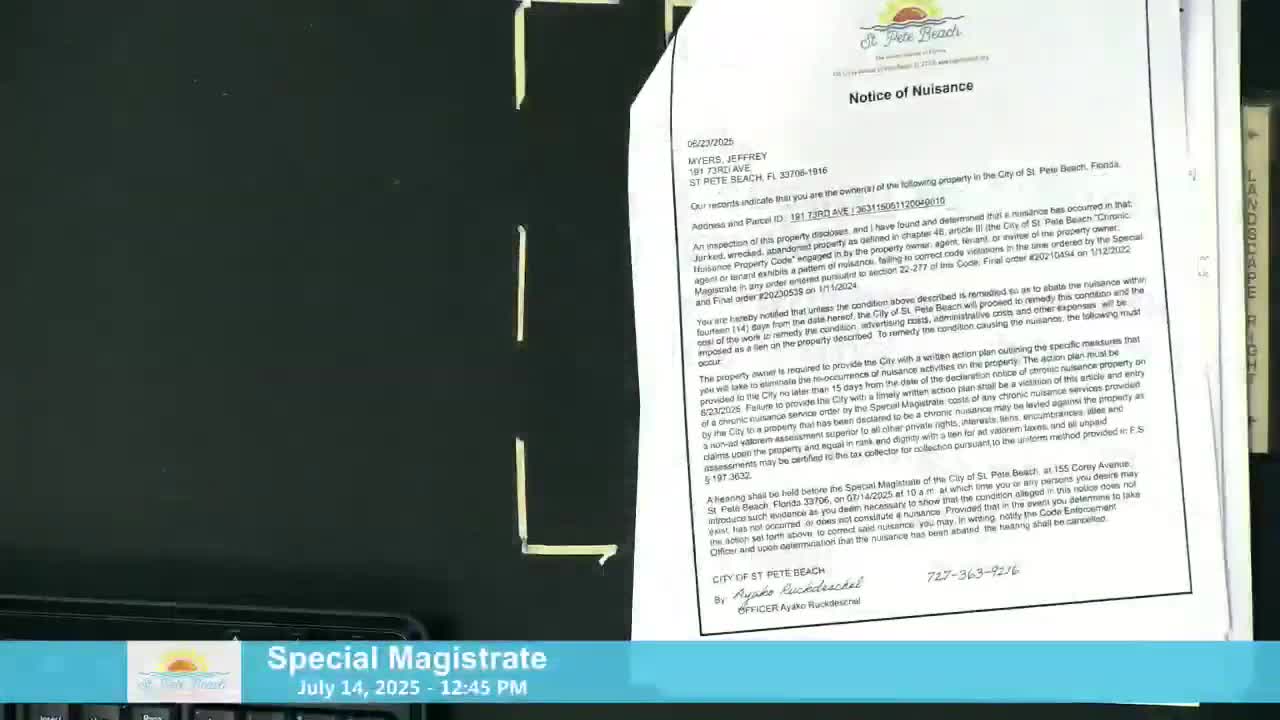
Two beachfront businesses told to switch to turtle‑friendly lighting or shut lights off by magistrate
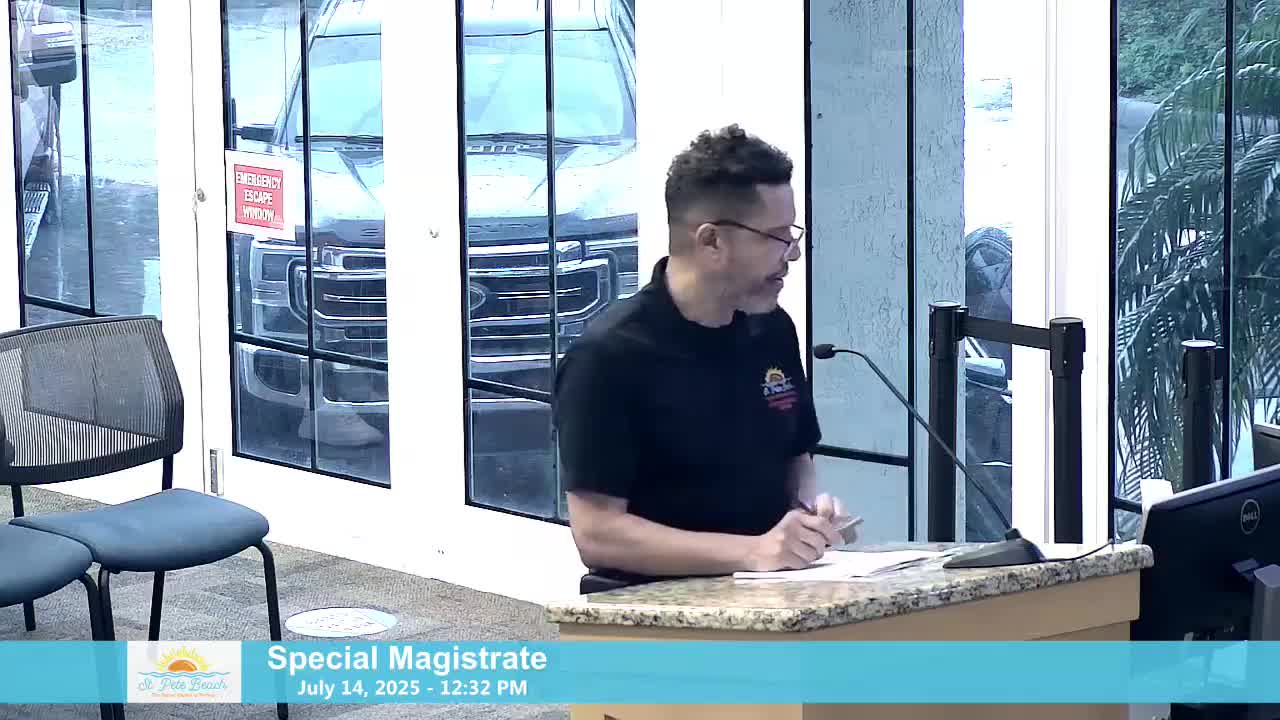
Magistrate declares property a chronic nuisance; city authorized to abate after 14 days
